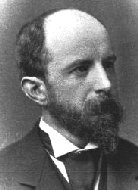On February 21, 1975, former United States Attorney General John N. Mitchell and former White House aides H. R. Haldeman and John Ehrlichman were sentenced to prison.
Category: Today
Feb 20, Prohibition ends
On February 20, 1933, the Twenty-first Amendment to the United States Constitution (to end alcohol Prohibition in the United States) was proposed in Congress.
Aaron Burr arrested
On February 19, 1807, former Vice President of the United States Aaron Burr was arrested for treason and confined to Fort Stoddert. He would later be acquitted.
In 1861, on this day in February, serfdom was abolished in Russia.
More than 60 tornadoes struck the Southern United States, on February 19, 1884, one of the largest tornado outbreaks in U.S. history. It must have been due to global warming.
Feb 18, WHITE ROSE
In a sad day for the cause of human liberty, on February 18, 1943, the Nazis arrested the members of the White Rose movement.
Burr-Jefferson
On February 17, 1801, an electoral tie between Thomas Jefferson and Aaron Burr was resolved when Jefferson was elected President of the United States and Burr Vice President by the United States House of Representatives.
Henry Adams, Feb 16
 On February 16, 1838, Henry Adams was born. One of the long line of Adamses, grandson of John Quincy Adams, Henry became a world-famous historian and critic of American politics. He also wrote several novels, including the classic, “Democracy.”
On February 16, 1838, Henry Adams was born. One of the long line of Adamses, grandson of John Quincy Adams, Henry became a world-famous historian and critic of American politics. He also wrote several novels, including the classic, “Democracy.”
On February 16, 1918, the Council of Lithuania unanimously adopts the Act of Independence, declaring Lithuania an independent state.